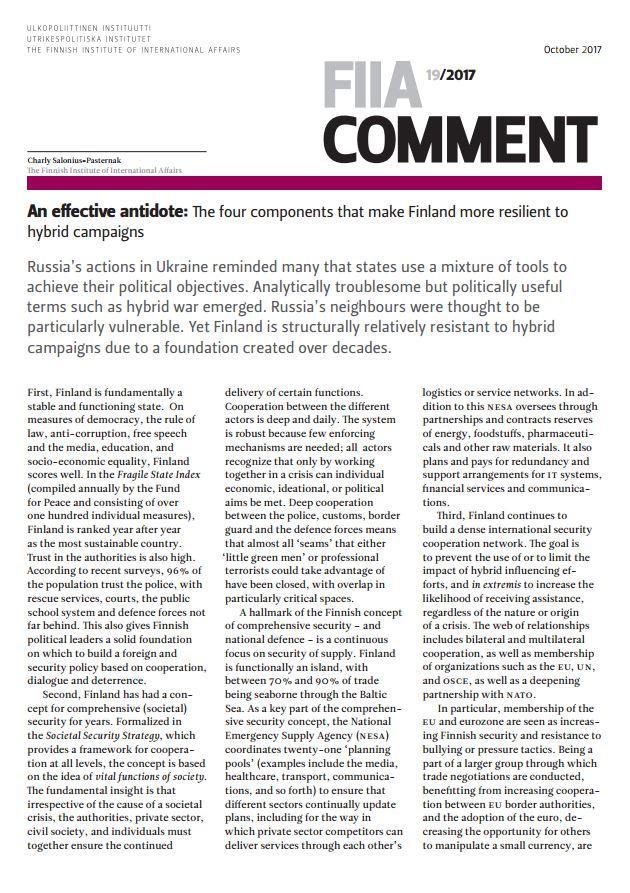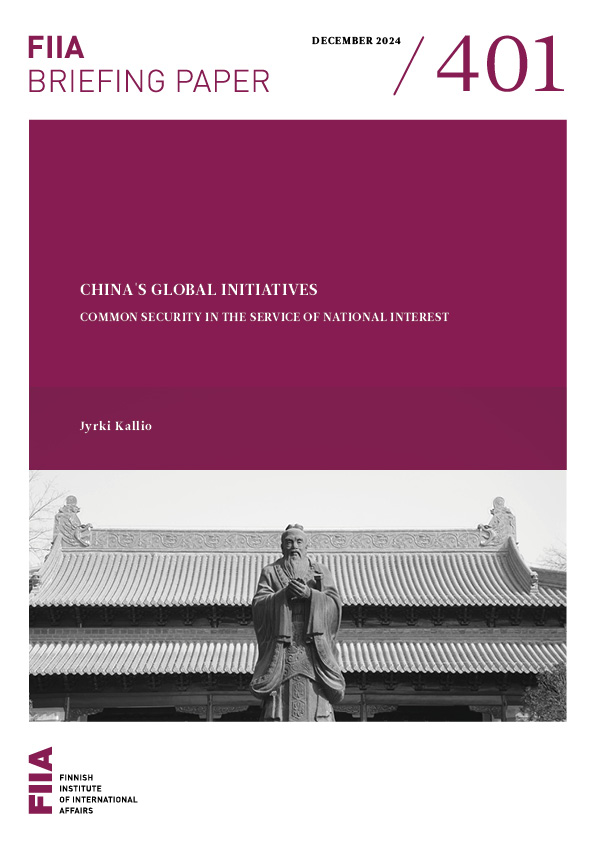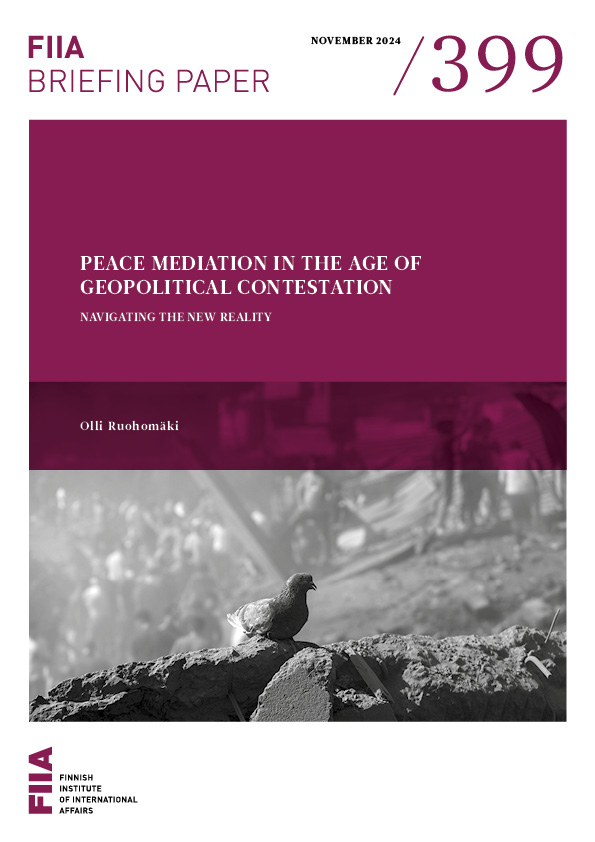Russia’s actions in Ukraine reminded many that states use a mixture of tools to achieve their political objectives. Analytically troublesome but politically useful terms such as hybrid war emerged. Russia’s neighbours were thought to be particularly vulnerable. Yet Finland is structurally relatively resistant to hybrid campaigns due to a foundation created over decades.
First, Finland is fundamentally a stable and functioning state. On measures of democracy, the rule of law, anti-corruption, free speech and the media, education, and socio-economic equality, Finland scores well. In the Fragile State Index (compiled annually by the Fund for Peace and consisting of over one hundred individual measures), Finland is ranked year after year as the most sustainable country. Trust in the authorities is also high. According to recent surveys, 96% of the population trust the police, with rescue services, courts, the public school system and defence forces not far behind. This also gives Finnish political leaders a solid foundation on which to build a foreign and security policy based on cooperation, dialogue and deterrence.
Second, Finland has had a concept for comprehensive (societal) security for years. Formalized in the Societal Security Strategy, which provides a framework for cooperation at all levels, the concept is based on the idea of vital functions of society. The fundamental insight is that irrespective of the cause of a societal crisis, the authorities, private sector, civil society, and individuals must together ensure the continued
delivery of certain functions. Cooperation between the different actors is deep and daily. The system is robust because few enforcing mechanisms are needed; all actors recognize that only by working together in a crisis can individual economic, ideational, or political aims be met. Deep cooperation between the police, customs, border guard and the defence forces means that almost all ‘seams’ that either ‘little green men’ or professional terrorists could take advantage of have been closed, with overlap in particularly critical spaces.
A hallmark of the Finnish concept of comprehensive security – and national defence – is a continuous focus on security of supply. Finland is functionally an island, with between 70% and 90% of trade being seaborne through the Baltic Sea. As a key part of the comprehensive security concept, the National Emergency Supply Agency (NESA) coordinates twenty-one ‘planning pools’ (examples include the media, healthcare, transport, communications, and so forth) to ensure that different sectors continually update plans, including for the way in which private sector competitors can deliver services through each other’s logistics or service networks. In addition to this NESA oversees through partnerships and contracts reserves of energy, foodstuffs, pharmaceuticals and other raw materials. It also plans and pays for redundancy and support arrangements for IT systems, financial services and communications.
Third, Finland continues to build a dense international security cooperation network. The goal is to prevent the use of or to limit the impact of hybrid influencing efforts, and in extremis to increase the likelihood of receiving assistance, regardless of the nature or origin of a crisis. The web of relationships includes bilateral and multilateral cooperation, as well as membership of organizations such as the EU, UN, and OSCE, as well as a deepening partnership with NATO.
In particular, membership of the EU and eurozone are seen as increasing Finnish security and resistance to bullying or pressure tactics. Being a part of a larger group through which trade negotiations are conducted, benefitting from increasing cooperation between EU border authorities, and the adoption of the euro, decreasing the opportunity for others to manipulate a small currency, are just a few of the examples whereby international cooperation increases resistance and resilience in the face of hybrid influencing campaigns. The vitality, robustness, and credibility of this network of international relationships is a key focus of Finnish foreign and security policy.
Fourth, Finland has a modern national defence system that has the Finnish Defence Forces at its core, but which integrates the plans of multiple security authorities, such as the border guards, into a coherent whole. This component is important because while hybrid campaigns are designed to induce behaviour that may run counter to national sovereign interests without crossing a conventional military threshold, it is the implicit or explicit threat of military force that increases the effect of other hybrid influencing tools. For this reason, the capacity of a defence system to adjust its readiness in public and non-public ways, as well as to provide an initial threshold or deterrent effect is essential. Increased readiness makes it possible for political decision-makers to respond flexibly to efforts to use limited military means to achieve a fait accompli, as seen in the Russian takeover of Crimea.
A focus on hybrid influencing efforts has also highlighted the benefits of a reservist-based defence system. The defence forces (and other authorities if they have requested assistance from the defence forces) can benefit from national cyber, logistics, communications, media and other experts when they need them, but at a fraction of the cost of continuously maintaining and refining the capability the reservists provide.
While concerns exist in Finland regarding communications, intelligence-gathering and offensive cyber capabilities, it is the robust intertwining of the four major components above that makes Finland structurally well placed to counter and resist hybrid campaigns characterized by efforts to destabilize society.






